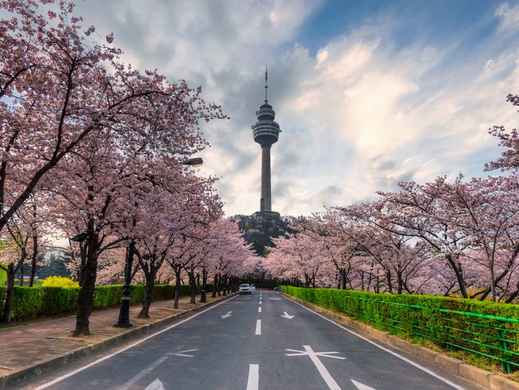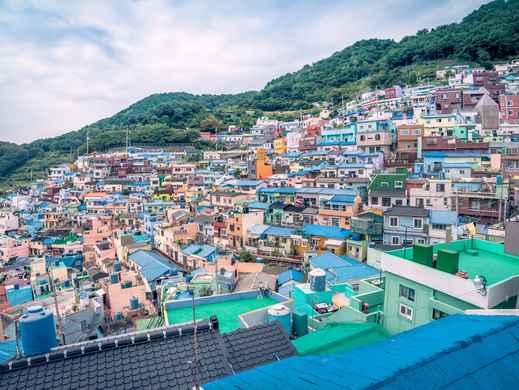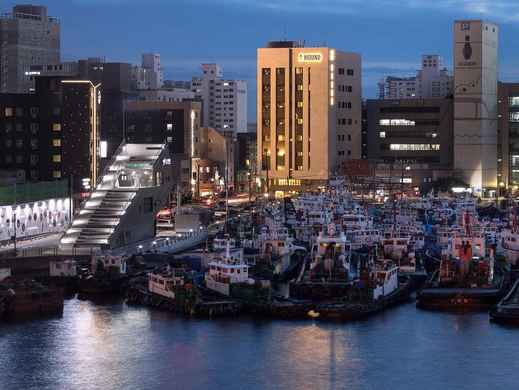


Gwangju
Asia
/
South Korea
/
Gwangju
Located in Gyeonggi Province, Gwangju is a metropolitan city with a diverse population of various ethnic and religious groups, earning the nickname "City of Flowers" due to the abundance of beautiful flowers that flourish there.
Located in the southwest of South Korea, Gwangju sits on the banks of the Yeongsan River and borders South Jeolla Province to the north, North Jeolla Province to the east, the East China Sea to the south, and Gyeonggi Province to the west. The city has a subtropical climate that experiences four seasons with varying rainfall throughout the year, making it cooler and more humid than other northern cities during winter and one of the hottest cities in South Korea during summer.
Gwangju offers a perfect blend of culture and history, making it a fascinating place to visit. The city offers several must-see attractions, including the Gwangju National Museum, Gwangju Biennale, and Gwangju Culture Station Art Center. Additionally, the city is eco-friendly, with numerous parks and green spaces for visitors to explore and enjoy.

Travel Tips for Gwangju
What you need to know before traveling here
Getting Around Gwangju
A guide to Gwangju's local transportation
The bus is the preferred type of public transportation in Gwangju due to its comfort and affordability. Bus tickets can be purchased at ticket machines or counters. Gwangju has two types of buses: city buses for routes within the city and intercity buses for routes to other cities in South Korea.
Practical Tips for Gwangju
Things to prepare and best way to visit
Gwangju is a great place for tourists to explore with plenty of fun activities. The Gwangju National Museum is a must-visit destination that features historical artifacts from all over South Korea. If you are an art enthusiast, the Gwangju Asia Culture Center is a great spot to enjoy various art and cultural performances from all over Asia. For nature lovers, the stunning scenery at Mudeungsan National Park and Gwangju Forest Park are there to welcome you.
If you enjoy shopping, make sure to check out the 1913 Songjeong Station Market in the heart of Gwangju city. This traditional market offers a wide range of products, including food, clothing, and souvenirs. It operates from 9:00 a.m. to 9:00 p.m. daily. After your market stroll, the Daein Art Market is a must-see attraction in Gwangju; it features an array of art pieces, including paintings, sculptures, and handicrafts. The market is open from 7:00 p.m. to 11:00 p.m. every day.
If you're looking for delicious culinary options in Gwangju, you should definitely try jjimdak. This chicken dish is cooked with a spicy and sweet gochujang sauce and is one of the most popular local dishes in the area. Jjimdak is usually served with rice, vegetables, and eggs. Another must-try dish is tteokgalbi, a local specialty made from minced beef ribs shaped like a patty. For something a little more unique, be sure to try oritang, Gwangju's special duck soup, made with chili powder, parsley, and roasted perilla seeds to thicken it. Oritang is difficult to find in other regions of South Korea, so make sure to try one when visiting Gwangju.
Gwangju is well-known for its diverse and enchanting festivals and events. One of the most popular events is the Gwangju Biennale, a biennial international art exhibition that highlights works from artists all around the world, which takes place in September and October. Another significant festival is the Gwangju Chilseok Gossaum Nori Festival, an annual traditional Korean celebration that honors the Night of Seven Stars or Chilseok, a Korean holiday that falls on the 7th of July in the lunar calendar, this festival is usually held in July or August.
When traveling to Gwangju, it's worth exploring nearby cities like Mokpo and Suncheon. Mokpo is a port city located in the southwest of South Korea, about 100 kilometers from Gwangju, and can be easily accessed by train in roughly an hour. It's a major transportation and trading hub for the region, as well as a popular tourist destination with beautiful beaches and a plethora of other attractions. Suncheon, on the other hand, is roughly 70 kilometers from Gwangju and is home to the Suncheon Bay Wetland Reserve, one of the world's largest wetland reserves and well worth a visit.

Travel Tips for Gwangju











 Facebook
Facebook Instagram
Instagram Youtube
Youtube
